Comprehensive Job Description for Security Guards
In today’s dynamic job market, the role of a security guard has become increasingly vital. A clear understanding of the job description security guard is essential for those looking to build a successful career in this field. This guide provides comprehensive insights into the responsibilities, skills, and expectations for security guards, tailored for the Philippine job market.
Security guards play an indispensable role in maintaining safety and order in various settings, from residential complexes to corporate offices. The job description security guard is much more than simply patrolling premises; it encompasses a wide range of duties requiring vigilance, professionalism, and dedication.
1. Core Responsibilities of Security Guards
The responsibilities of a security guard go beyond the surface-level assumption of standing at an entry point or monitoring CCTV screens. Below are the detailed roles they are expected to perform:
1.1. Ensuring Safety and Security
A primary duty of a security guard is to safeguard people and property. This includes preventing unauthorized access, monitoring suspicious activities, and addressing security breaches promptly.
Example: In a shopping mall, a security guard not only monitors entrances but also assists in crowd management during peak hours, ensuring customer safety.
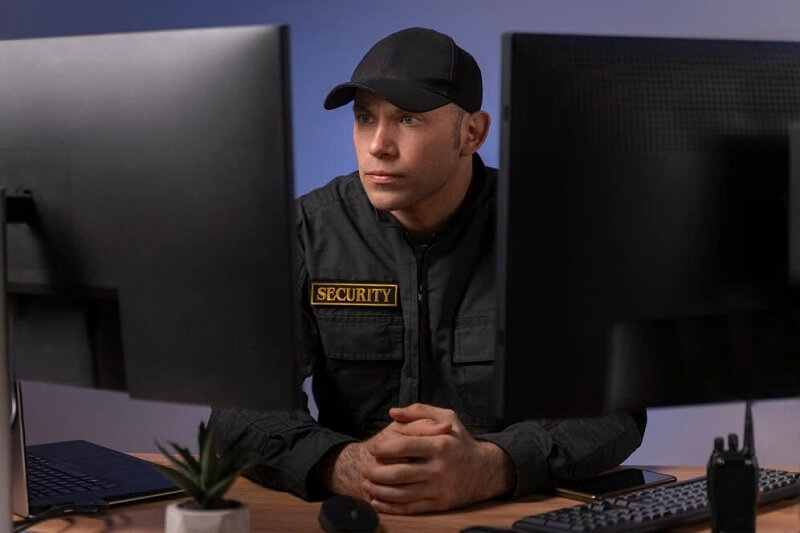
1.2. Conducting Surveillance
Security guards are responsible for conducting routine surveillance using tools like CCTV systems, walkie-talkies, and alarm systems. Their ability to detect unusual behavior early is crucial for preventing incidents.
Practical Tip: Familiarizing oneself with modern surveillance equipment can significantly enhance efficiency in this role.
1.3. Handling Emergency Situations
From fire evacuations to medical emergencies, security guards are often the first responders. Their actions during such critical moments can save lives and minimize damage.
Case Study: A security guard at a corporate building once managed a smooth evacuation during a fire drill, showcasing their preparedness and quick thinking.
2. Skills and Qualifications Required for Security Guards
Beyond physical fitness, the role demands a blend of technical knowledge and interpersonal skills. Let’s explore these in detail:
Communication Skills
Effective communication is key to de-escalating tense situations and providing clear instructions during emergencies. Security guards must be able to relay information succinctly to both colleagues and the public.
Technical Proficiency
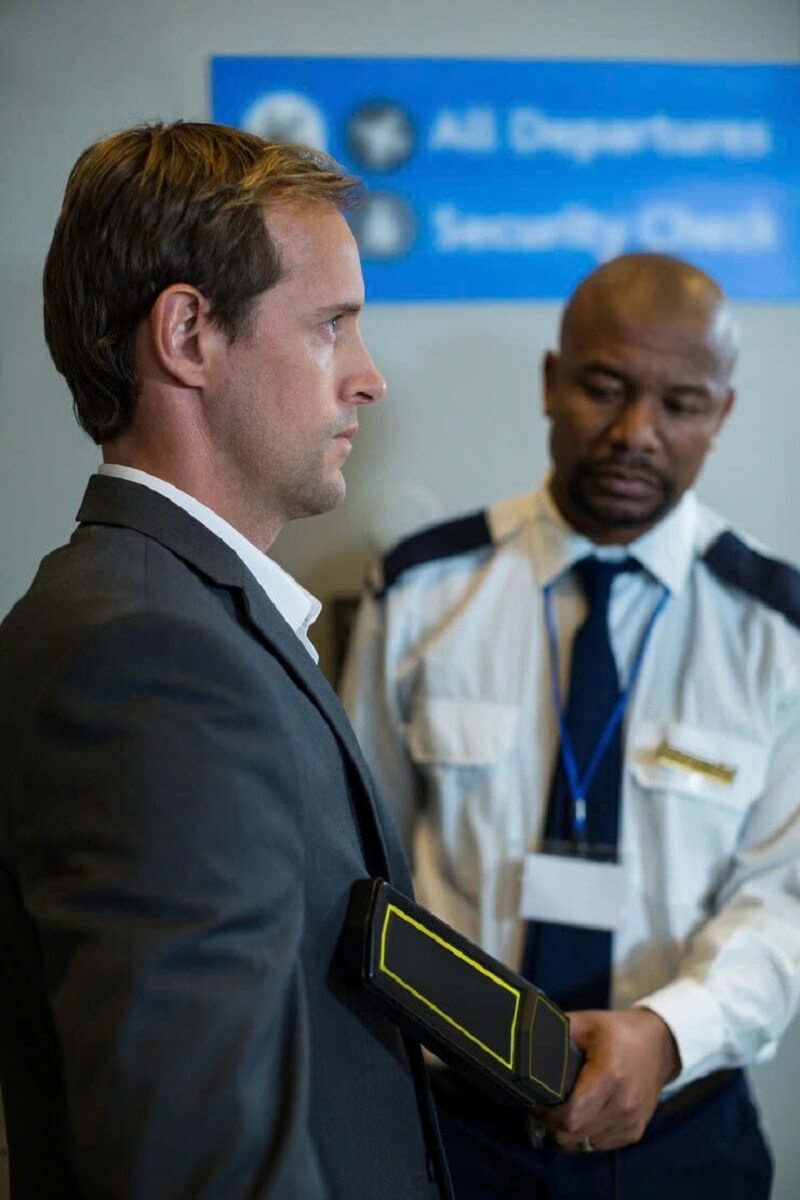
Familiarity with security systems and basic first aid knowledge can set a security guard apart. For example, knowing how to operate an automated defibrillator can be critical in medical emergencies.
3. Key Challenges Faced by Security Guards
While the role of a security guard is vital, it also comes with its unique set of challenges. Understanding these obstacles can help both employers and aspiring security guards prepare effectively.
3.1. Managing Stressful Situations
Security guards often operate in high-pressure environments, such as large events or conflict-prone areas. Maintaining composure and professionalism during stressful situations is essential.
Example: A security guard at a concert might need to manage unruly crowds while ensuring the safety of performers and attendees.
3.2. Adapting to Long Hours
Many security jobs require extended working hours, which can be physically and mentally exhausting. Guards must develop stamina and time-management skills to perform effectively.
Tip: Regular breaks and a healthy lifestyle can help manage the demands of this aspect of the job.
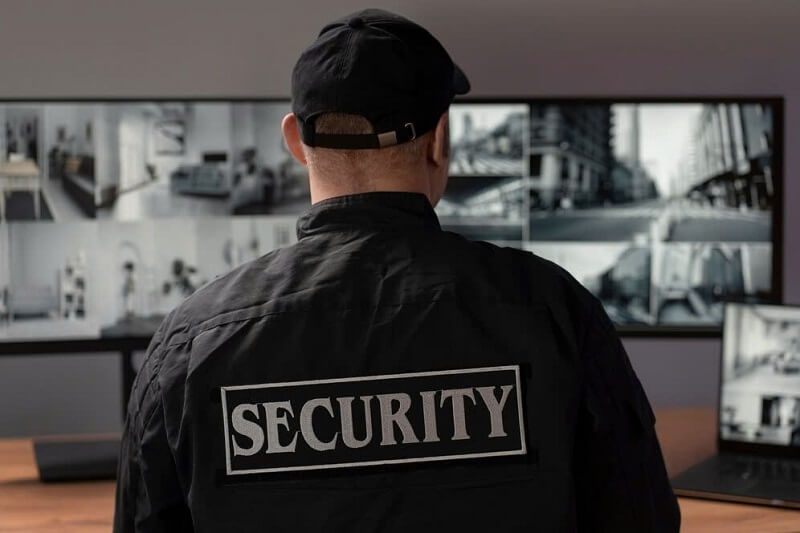
3.3. Staying Alert During Monotonous Tasks
While some tasks, such as monitoring CCTV footage, might seem repetitive, they require constant attention to detail. Even a momentary lapse can lead to significant security breaches.
Practical Insight: Implementing short, focused observation intervals can improve attention span and overall effectiveness.
4. Essential Tools and Technologies for Security Guards
Modern security guards rely on a variety of tools and technologies to enhance their efficiency and effectiveness. Here’s a breakdown of the most commonly used tools:
4.1. Surveillance Equipment
CCTV cameras, motion detectors, and alarm systems are fundamental to the job. Guards must know how to operate and troubleshoot these devices to maintain seamless security operations.
Case in Point: A guard at a tech park prevented unauthorized entry by swiftly identifying and responding to an anomaly on a security feed.
4.2. Communication Devices
Walkie-talkies, mobile phones, and other communication tools ensure that guards can relay information quickly and coordinate effectively with teams.
Practical Application: Regular drills and training on communication protocols can improve response times in emergencies.
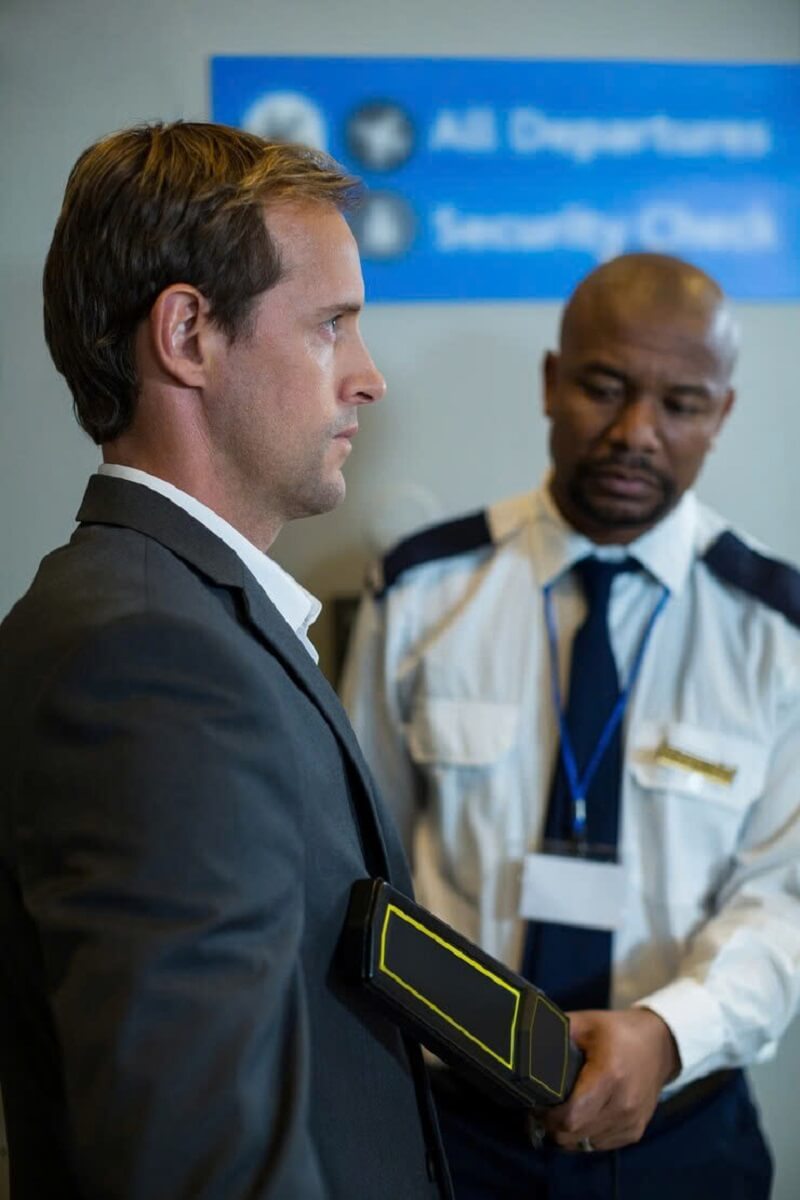
4.3. Personal Protective Equipment (PPE)
Depending on the environment, security guards may need PPE such as bulletproof vests, helmets, or protective gloves. This ensures their safety while handling potentially dangerous situations.
5. Career Path and Opportunities in Security
The security industry offers various growth opportunities for dedicated professionals. From entry-level roles to specialized positions, the career path is both dynamic and rewarding.
5.1. Entry-Level Roles
Most security guards start in general security positions, gaining hands-on experience and foundational skills. These roles typically involve routine patrols, monitoring premises, and reporting incidents.
Example: A mall security guard might transition into a supervisory role after demonstrating strong performance and reliability.
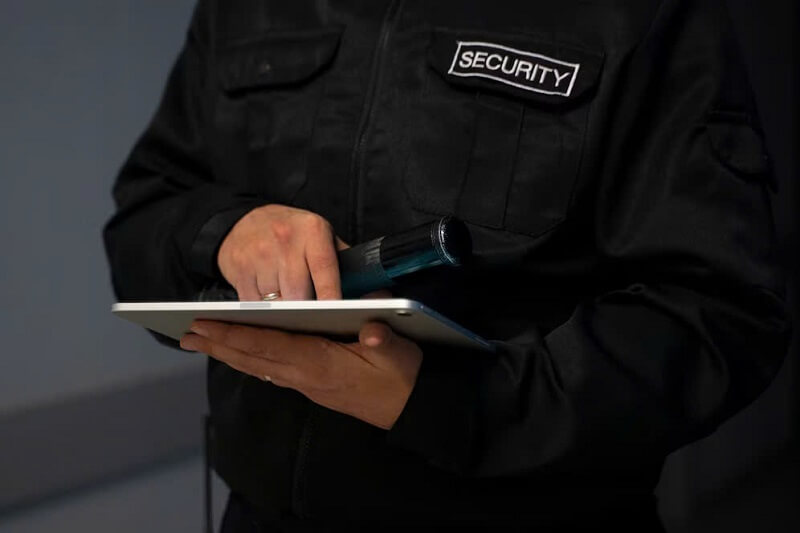
5.2. Specialized Roles
With experience, guards can move into specialized areas like personal security, cybersecurity monitoring, or crisis management. These roles often require additional certifications or training.
Case Study: A guard who specialized in executive protection was later employed by a high-profile client for personalized security services.
Pro Tip: Excelling in a job interview for these specialized roles often requires demonstrating situational awareness and expertise in handling complex scenarios.
6. Training and Certification for Security Guards
To excel in their roles, security guards must undergo proper training and obtain relevant certifications. This ensures they are well-prepared to handle the complexities of the job.
6.1. Mandatory Training Programs
Training programs equip security guards with the essential knowledge and skills to perform their duties effectively. These programs typically cover areas like:
- Basic Security Procedures: Understanding entry and exit protocols, patrolling techniques, and crowd management.
- Emergency Response: Training on how to handle emergencies such as fire outbreaks, medical incidents, or security threats.
Example: Guards trained in first aid can quickly assist injured individuals during workplace accidents.
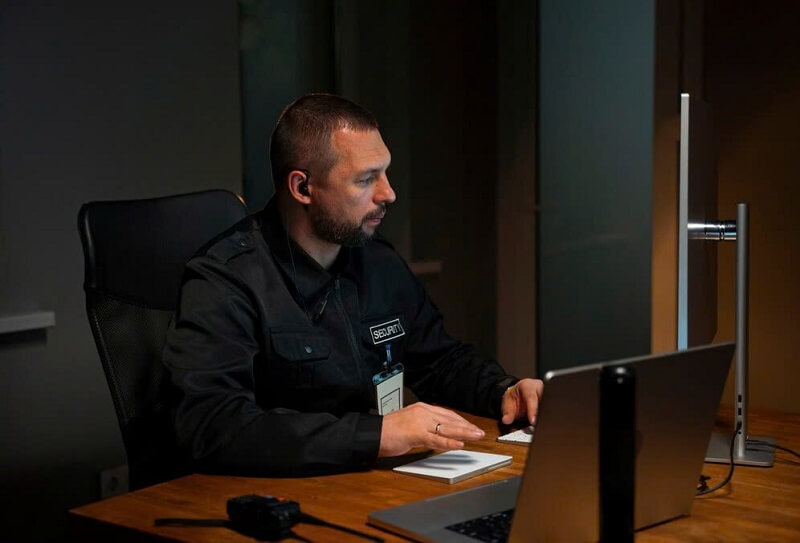
6.2. Advanced Certifications
Beyond basic training, obtaining advanced certifications can open doors to specialized roles. Certifications might include:
- Firearms Training: For guards who work in high-risk environments requiring armed security.
- Cybersecurity Awareness: Increasingly relevant as more security systems become digitized.
Case Study: A certified guard specializing in cybersecurity was hired by a tech company to monitor sensitive data and prevent breaches.
6.3. Local Regulations and Compliance
In the Philippines, security guards are required to comply with national regulations, such as securing a Security Guard License issued by accredited agencies. Adherence to these regulations not only ensures legal compliance but also enhances trustworthiness.
Tip: Preparing for behavioral interview questions can help candidates effectively communicate how their experiences align with the expectations of the role, especially when discussing past incidents and responses.
7. The Future of the Security Guard Profession
The security industry is evolving rapidly, driven by technological advancements and growing demand for specialized services. Here’s what the future holds for this profession.
7.1. Integration of Advanced Technology
Modern security operations are becoming increasingly reliant on technology such as:
- AI-Powered Surveillance: Cameras equipped with artificial intelligence to detect threats automatically.
- Biometric Access Systems: Replacing traditional keycards for enhanced security.
- Insight: Guards who adapt to these technologies early will have a competitive edge in the job market.
7.2. Rising Demand for Specialized Guards
As risks evolve, there is a growing need for specialized security roles, such as cybersecurity analysts or disaster response professionals.
Example: During the pandemic, demand for health security personnel surged, highlighting the importance of adaptability in the field.
7.3. Emphasis on Soft Skills
While technical skills are critical, the importance of soft skills like communication, empathy, and conflict resolution is gaining recognition. These skills are vital for building trust and ensuring smooth interactions with clients and the public.
Case in Point: A guard at a high-end hotel used effective communication to resolve a guest dispute, earning commendation from management.
Conclusion
In conclusion, the job description security guard encompasses a wide array of responsibilities, skills, and challenges that require dedication and continuous learning. By understanding the demands of this role and preparing accordingly, aspiring security guards can build a rewarding and impactful career. As the profession evolves, staying updated with emerging trends and technologies will be key to long-term success.
- Essential Job Description Supervisor Guide for Success
- Essential Job Description Sales Guide for Success
- Job Description Restaurant Manager – Roles & Skills
- Understanding the job description project coordinator role
- Job Description HR Assistant—Roles and Responsibilities
- Essential Guide to Job Description COO
- Comprehensive Job Description Admin Assistant Insights
- A Comprehensive and In-Depth Job Description for HR Generalist
- Comprehensive Guide: Job Description Executive Chef
- Top 5 Best Job Search Sites for Easy Job Applications
- QA Job Description: Key Skills and Roles in 2025
- The Complete Clerk Job Description Guide
- What Is Your Greatest Weakness? Mastering the Answer
- Master the Phone Interview for Career Success
- Crafting the Perfect CV Personal Statement
- What is a Job Description Warehouse Worker?
- Detailed job description teller bank for career growth
- Comprehensive Job Description Store Manager Guide
- Comprehensive Guide to Job Description Personal Assistant
- Comprehensive Guide to Job Description Nursing Assistant
- Comprehensive Job Description Graphic Designer Guide
- Comprehensive Job Description Chief of Staff Guide
- Comprehensive Job Description Cleaner Guide
- Comprehensive Job Description Assistant Manager
- Comprehensive Guide to Job Description Account Executive
- Comprehensive Guide to Secretary Job Description
- Comprehensive Job Description of Teaching Assistant
- Comprehensive Job Description for a Social Media Manager
- Mastering STAR Interview Techniques: The Ultimate Guide
- “I Hate My Job” – What You Should Do Next
- What Is a Job Description Team Leader?
- A Complete Guide to Job Description Sales Assistant
- Comprehensive Job Description for Security Guards
- Detailed Job Description for HR Manager
- The Ultimate Guide to Job Description Medical Assistant
- Job Description Housekeeping: Key Roles & Responsibilities
- Job Description Merchandiser: Key Roles & Skills
- Job Description Product Manager: Roles and Responsibilities
- Job Description Account Manager: Roles and Responsibilities
- Job Description Marketing Manager: Roles & Skills
- Job Description HR: The Essential Guide for HR Professionals
- Best Jobs for Introverts: Top Careers for Quiet Thinkers
- What is Your Greatest Strength? How to Answer Effectively
- Job Description Data Entry Guide
- Detailed Job Description Sales Manager Guide
- The Importance of Work Experience on a Resume
- Comprehensive Job Description Sales Representative Insights
- Comprehensive Job Description of Project Manager
- Job Description Executive Assistant: Key Responsibilities
- Job Description for Sales Executive: Key Roles and Skills
- Job Description Customer Service Roles
- Job Description Business Analyst: Roles and Skills
- Comprehensive Job Description for a Receptionist
- Mastering the Sales Associate Job Description
- Understanding Accountant Job Description in Detail
- Hard Skills vs Soft Skills: Key Differences and Examples
- Why Do You Want to Work Here? Best Answer and Examples
- How to Decline a Job Offer Politely and Gracefully
- Comprehensive Job Description of Waitress
- Job Description Cashier: Key Responsibilities and Skills
- Where Do You See Yourself in 5 Years?
- Mastering Problem Solving Skills for Career Success
- Effective Job Description Sample Guide
- Behavioral Interview Questions Guide
- Comprehensive Job Description for an Administrative Assistant
- Essential Job Titles for Career Success
- Master Leadership Skills for Effective Management
- How to Write a Perfect Motivational Letter
- CV vs Resume: Understanding the Key Differences
- Top Reasons for Leaving a Job Today
- What Is a Resignation Letter? Key Details You Must Know
- How to Write a Perfect Job Application
